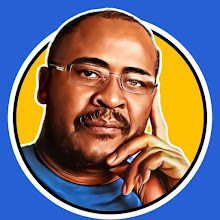At Zimbabwean independence I was 13 years old, when Robert Mugabe was appointed the first Prime Minister and head of the Zimbabwean government. It was a very exciting moment for the people of Zimbabwe, celebrated with none but the most highly lyrical reggae artist Robert Nesta Marley at Rufaro Stadium.
A lot of fast-track role allocation took place within government between 1980 to 1987 with Robert Mugabe’s role as Prime Minister being transformed to Executive President at the signing of the Unity Accord between Zimbabwe’s two liberation movements ZAPU PF and ZANU PF. Credit should however be given to the pioneers of the first cabinet, who had to practically learn through trial and error the various management functions of public service institutions, so perhaps we could say the first ten years of independence were an induction phase where the new government had to familiarise themselves with the various functions of government.
From 1990 to 2000 I believe should have been a period of extensive political and economic reforms that should have seen the gradual and systematic land reform process, the modification of retrogressive government policies inherited from the colonial era that would have effectively addressed the socio-economic imbalances from the past, shifting power from central government to the provinces in order to try a promote a balanced national development initiative. This period could also have been used to erase the negative functions in our identity system that promote divisions based on race and tribe, I think what’s important in building a cohesive society is having policies that promote the understanding of our diversity in terms of culture, religion etc. In short government was meant to change the old system of governance which benefited a minority rich to equally benefit all citizens.
From 2000, instead of seeing steady socio-economic growth, we started seeing fast socio-economic decline followed by a desperate move by President Mugabe to retain power by fast tracking the land redistribution programme that led to the violent farm seizures and political instability that led to the forced migration of most of Zimbabwe’s professionals and working class to neighbouring countries in pursuit of better opportunities and in some cases political asylum. I think it is pretty clear to most level headed Zimbabweans that this period presented the first real signs that the people of Zimbabwe wanted change in the way government was being managed.
Several anti-government protests came to life including the formation of MDC (1999) from Zimbabwe’s Trade Union Movement. They say power corrupts, and proof of this was in the experience Zimbabweans have had to endure up to date, our country is now in the hands of very dirty and corrupt politicians who we previously entrusted the right to rule based on liberation ideology. Now it seems our liberators have slowly become our colonisers, using the same systems that oppressed us before independence to oppress us now, they have personalised the whole system of governance with political party’s is being branded against leader’s names. Our leaders have become more powerful than our institutions, power has become more important to them than service delivery to the community, it now seems any party or any leader without links to the history of the liberation of Zimbabwe is not a credible candidate for Presidency. Heroes are only those who have remained in the ruling party and contributed in some way to service in government or politics, who makes these decisions, the people? Or a few old men sitting behind table thinking about their next loot?
We are tired of the same old rhetoric, talk and promises, we desperately need some serious and committed representatives in our government who will place people first before party and self-interest. We want extensive political and economic reforms not ELECTIONS if we are to have free and fair elections; we want a people’s police force, people army non-aligned to any political party or individual. Most of all we all need to change our attitudes and focus on working towards a common goal, that that does not hero worship leaders but provides a fair judgement on their credibility and ability to lead.


1 comment:
Rightly said Sir. Thanks.
Post a Comment